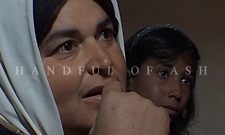The long road to the first FGM-free villages in Iraq
From Rumors to Reuters
By Arvid Vormann, WADI Anti-FGM Program Coordinator
According to a large survey conducted in 2009, Female Genital Mutilation (FGM) is prevalent in all provinces of Kurdish Northern Iraq, except in the far northern Duhok region. More than 72% are affected, in villages and cities alike, among illiterates and, to a lesser extent, among academics. FGM is almost everywhere.
The area, heavily struck by Saddam’s genocidal poison gas attacks in the late 80s, by civil war in the 90s, and threatened by Saddam’s army and Islamic groups until 2003, is also marked by very high rates of honor killings, domestic violence, forced marriages and other gender-related crimes. Mobile health teams of the German-Iraqi relief organization Wadi first reported the existence of FGM in 2004. After the toppling of Saddam Hussein, time seemed to be ripe. The first few women started to talk about all the pain and agony caused by the physical and psychological consequences of the mutilations forced on them as little girls. Since then, democracy and freedom of the press, despite all their immense shortcomings in this autonomous region, have laid ground for a successful public campaign against FGM. “Stop FGM in Kurdistan” was a grass root initiative – something hitherto unheard of, as usually everything is controlled from above. The feedback was overwhelming. Human Rights Watch further promoted the cause.Nowadays, FGM is a matter of public debate, unthinkable a few years ago. Public pressure and growing international attention finally led the Kurdish Regional Parliament to enforce the adoption of a comprehensive Family Violence Bill which renders punishable many forms of violence against women and children, including FGM.
"They say “we always did it” and “it is Islam” when asked why they cut their daughters’ genitalia."
Activists are now striving for the actual implementation of this law. Wadi as a member of the UNAMI Sulaimani NGO coordination group is taking the lead on implementation efforts in Sulaimaniyah as part of a coalition of 40 NGOs. For the same purpose, Wadi is closely cooperating with the Kurdistan Regional Government (KRG) Department of Domestic Violence. Recently, the KRG showed some growing initiative and engaged in first concrete steps. Kurdish Prime Minister Nechirvan Barzani himself called publicly “on mothers and sisters to help stop the mutilation of women.” From a total taboo to this amazing statement it took no more than eight years.
Wadi’s continued efforts to teach women about the adverse health effects of FGM and to encourage a stop of the practice start to bear results in those areas that have received awareness and assistance for more than five years now. According to data collected by the teams, the rate of young mothers in these areas who still intend to practice FGM on their daughters is in sharp decline. To further promote the idea of stopping FGM, Wadi has adopted an approved strategy from Egypt, the “FGMfree villages”. Several villages dissociate themselves from FGM and swear in public to stop the cuttings in return for some small community projects. The reward is a compensation for doing it in public and in front of the media, as an “FGM-free village”. It is too small to persuade anyone not convinced.
The project includes seven villages and is waiting for expansion. So far, all villages respected the rules, and not a single mutilation has taken place ever since. Other villages nearby heard of the project and also stopped FGM. The initiative received considerable media attention. Portrayed by Reuters news agency the village Tutakal even gained “world fame”.
Working with those who are willing to cooperate has proven an excellent strategy. Awareness raising is essential, but in the end it is not knowledge alone which makes the difference. Stopping FGM involves questions of tradition, religion, and women’s rights. It is a social and a political issue. Ultimately, ending this plague is a mere matter of decision. A human rights organization should take sides and look out for allies. While always staying strictly non-partisan, it should support those in favor of human rights.
Unfortunately, FGM does not stop at the borders of Iraqi Kurdistan. Neither is it an “African problem”, nor a “Kurdish problem”. FGM is known to be practiced in Iraq, Iran, Yemen, Oman, UAE, Pakistan, Tajikistan, the Maldives, Malaysia, parts of India and Thailand, and, in a very organized and systematic way, in Indonesia. It may be assumed that this is still not the whole picture since there is a lack of data from many countries.
Still, however, FGM in Asia is treated like a side issue. To show the real extent and raise awareness on the national and international level, Wadi and the Dutch organization Hivos launched the “Stop FGM Middle East” campaign. In January 2012, they held the first ever conference on FGM in the Middle East in Beirut. Wadi reached out to Central Iraq and conducted the first FGM survey ever beyond the borders of the KRG, in Kirkuk governorate. The overall FGM rate amounted to 38.2% of women above the age of 14. Notably the study showed that FGM is rather common among Arabs, supporting rumors about FGM being practiced in places like Baghdad and southern Iraq, too.
FGM in Asia has been ignored for too long. To shed more light on the extent of the problem and as a preparation of a region-wide action plan, further FGM research should be conducted soon in Iraq and beyond.






 Clinton: 'Cultural Tradition' is No Excuse for Female Genital Mutilation
Clinton: 'Cultural Tradition' is No Excuse for Female Genital Mutilation


